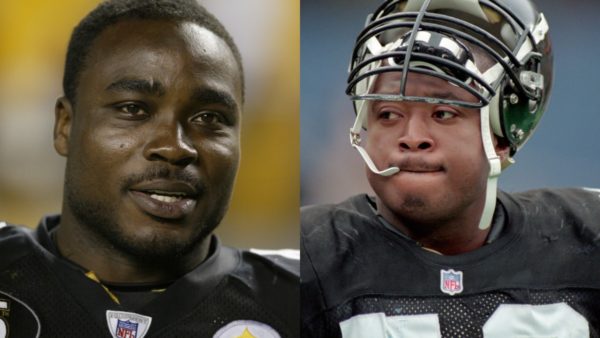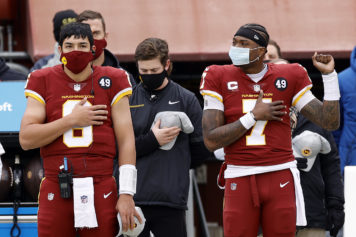Retired NFL players Kevin Henry and Najeh Davenport filed federal lawsuits this week to claim the $1 billion class-action concussion settlement reached between the league and former players in 2014 discriminates against former Black players who seek claims. The heart of suit is the contention that race factors in during the medical evaluation process of players seeking compensation for their mental impairment caused by playing in the violent sport, and the league presumes that Black players have lower cognitive ability than white players.
Henry and Davenport are among the players who learned that race, age, and education are partially used to determine the amount of cognitive decline they suffered. The suit was filed on Tuesday, Aug. 25, in the U.S. District Court for the Eastern District of Pennsylvania in Philadelphia.

“When being evaluated for the qualifying diagnoses of neurocognitive Impairment, Black former players are automatically assumed (through a statistical manipulation called ‘race-norming’) to have started with worse cognitive functioning than white former players,” read court filings.
“As a result, if a Black former player and a white former player receive the exact same raw scores on a battery of tests designed to measure their current cognitive functioning, the Black player is presumed to have suffered less impairment, and he is therefore less likely to qualify for compensation,” it continued.
Henry, who played running back for the Pittsburgh Steelers, and Davenport, a defensive end for the Green Bay Packers, Pittsburgh Steelers, and Indianapolis Colts, are hoping the filing leads to a class-action lawsuit involving other Black claimants, according to the Daily Mail. Both Henry and Davenport said they suffered multiple concussions in their playing days.
They’ve also made a request to the federal court that’s overseeing the settlement ensures that the NFL isn’t allowed to use “race-normed” scores when determining benefits for retired players. Additionally, they’ve asked that the league pay damages to former Black players who’s claims were determined by that method. The NFL does not administer the claims under the settlement, but it can and does appeal awards to players who were not medically evaluated using race-normed cognitive scores. Some 70 percent of the league’s players are Black.
“The NFL’s administration of the settlement created a ‘Black’ door and a ‘White’ door for benefits, in which former players with identical test scores get different treatment, solely on the basis of race,” said lead counsel for the players, Cy Smith. “This approach was not required by the settlement and the NFL is fully aware of its discriminatory impact on Black players. The NFL has a choice to make: live up to its word and treat Black players like their lives matter, or continue pushing them aside.”
Thousands of lawsuits from former players were addressed with the 2014 settlement, but it was after the league was accused of not being forthright about the true effects of having numerous concussions.
After the suit was filed, an NFL spokesperson issued a statement.
“The Settlement Program, which has already paid over $700 million in benefits to retirees and their families, was the result of arm’s-length, comprehensive negotiations between the NFL and Class Counsel, was approved by the federal courts after a searching review of its fairness, and always contemplated the use of recognized statistical techniques to account for demographic differences such as age, education, and race,” said the spokesperson.
“The point of such adjustments — in contrast to the complaint’s claims — is to seek to ensure that individuals are treated fairly and compared against comparable groups,” that person continued. But the Settlement Agreement does not require the use of any particular adjustments, and instead leaves their use to the sound discretion of the independent clinicians administering the tests in any particular case.”
Davenport previously received word that he was to be paid a certain amount from the claims adjuster, after having a test that didn’t factor in race. But the NFL appealed the claim and said Davenport “Did not demonstrate the requisite cognitive impairment” based on his age and race. Henry’s claim reportedly was denied for the same reason.
Henry played in the NFL from 1993 to 2000, and Davenport’s career spanned 2002 to 2008.


